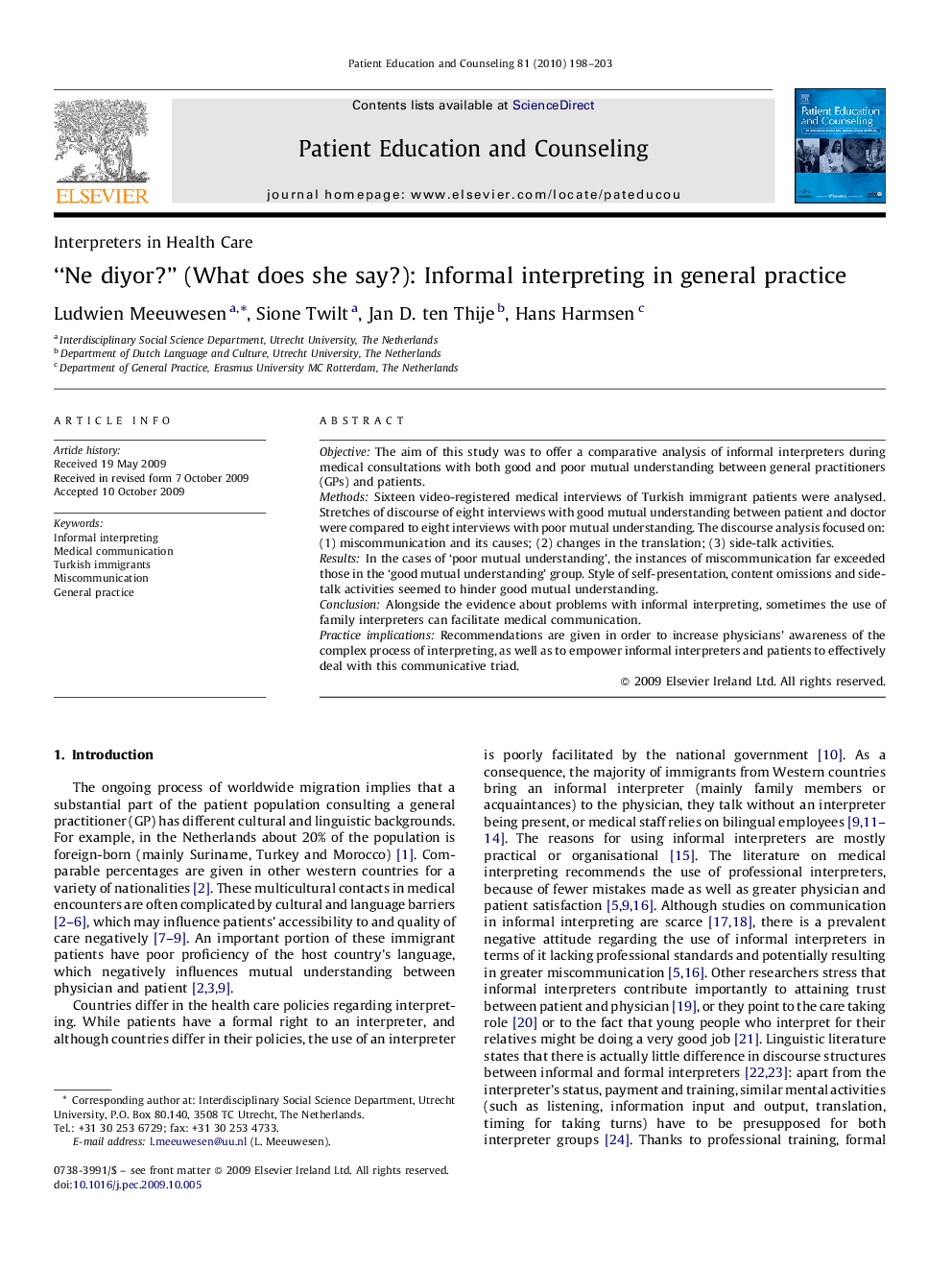| Article ID | Journal | Published Year | Pages | File Type |
|---|---|---|---|---|
| 3814688 | Patient Education and Counseling | 2010 | 6 Pages |
ObjectiveThe aim of this study was to offer a comparative analysis of informal interpreters during medical consultations with both good and poor mutual understanding between general practitioners (GPs) and patients.MethodsSixteen video-registered medical interviews of Turkish immigrant patients were analysed. Stretches of discourse of eight interviews with good mutual understanding between patient and doctor were compared to eight interviews with poor mutual understanding. The discourse analysis focused on: (1) miscommunication and its causes; (2) changes in the translation; (3) side-talk activities.ResultsIn the cases of ‘poor mutual understanding’, the instances of miscommunication far exceeded those in the ‘good mutual understanding’ group. Style of self-presentation, content omissions and side-talk activities seemed to hinder good mutual understanding.ConclusionAlongside the evidence about problems with informal interpreting, sometimes the use of family interpreters can facilitate medical communication.Practice implicationsRecommendations are given in order to increase physicians’ awareness of the complex process of interpreting, as well as to empower informal interpreters and patients to effectively deal with this communicative triad.
